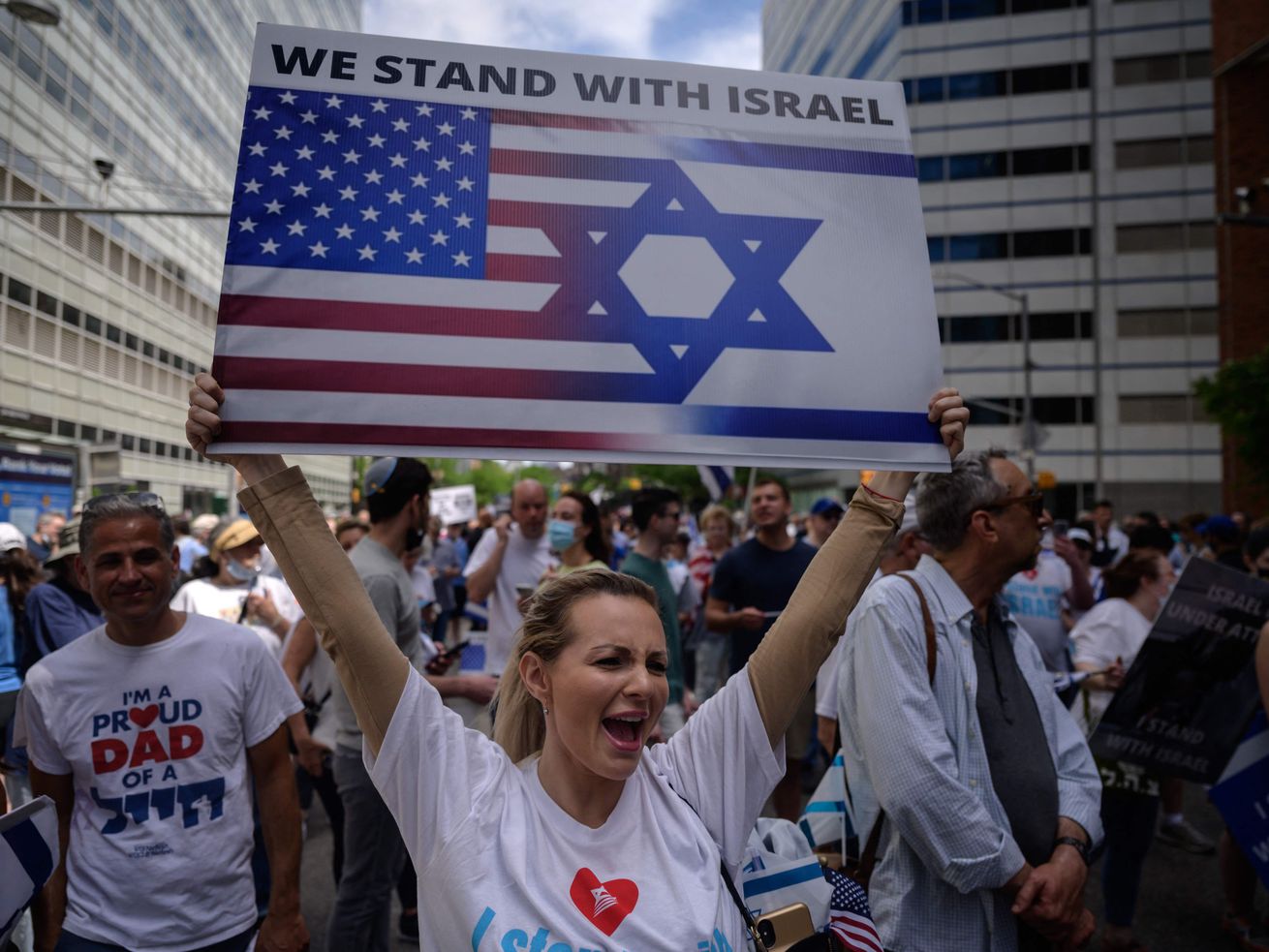
With the easing of pandemic restrictions and the latest battle between Hamas terrorists and Israel, there has been a horrific resurgence of antisemitism in the United States.
The COVID-19 pandemic put many wonderful aspects of everyday life on an extended pause, from weddings and family visits to cultural and sporting events.
In a significant turn of events, some hateful activities also were put on pause, including what had been a steady rise in antisemitism.
Now, suddenly, with the near simultaneous easing of pandemic restrictions and the latest battle between Hamas terrorists and Israel, there has been a horrific resurgence of antisemitism on America’s streets and social media.
Even during the 14 years I was running the Chicago office of the ADL, I never saw such a torrent of antisemitism in such a short period of time.
Last week in New York, over a span of just three days, six men shouting “free Palestine” punched two Jewish teenagers; a group brandishing a Palestinian flag as a weapon harassed and spat on diners suspected of “dining while Jewish;” a band of youths, keffiyehs covering their faces, lunged at men in kippahs, accusing them of supporting child murder; another mob cornered two Jews, sparking a street brawl, and yet another cruised an iconic Jewish business district, harassing pedestrians and lobbing fireworks, burning a 55-year-old woman. A 20-year-old professional soccer player was accosted by men wielding knives who asked if he was Jewish — and threatened to kill him if his answer was yes.
In Los Angeles, pro-Palestinian attackers barged into a sushi restaurant, asked who was Jewish and threw punches and bottles at diners. In Florida, a man hurled antisemitic abuse at a rabbi and later emptied a bag of feces outside the rabbi’s synagogue. In Tucson, unidentified individuals hurled a large object through a synagogue’s glass doors.
Here in metropolitan Chicago, a Skokie synagogue’s windows were broken, with a “free Palestinian” sticker left behind as a calling card. And in Naperville, pro-Palestinian counter-protestors surrounded, shook and assaulted a parked vehicle of Israel supporters, shouting, in Arabic and English, “death to Jews.”
Sadly, in a victory for the haters, some American Jews are taking kippahs off their heads, Stars of David from their necks, and mezuzahs (small prayer parchment) from their doorposts. Still others are no longer walking to synagogue amid this wave of antisemitic brutality.
Increasingly, social media provides zero respite from the antisemitism of the streets.
A local Facebook group for moms sharing parenting resources was hijacked by an anti-Israel administrator who proceeded to expel any of the 41,000 followers who expressed support for Israel, challenged her anti-Israel views or in some cases just had Jewish-sounding last names.
Posting hateful, intimidating antisemitic messages and images on previously civil Twitter, Facebook and Instagram accounts is now frighteningly common. Merely identifying oneself as a Jew has become a veritable invitation to be abused by hundreds online — or to be “canceled.”
Antisemitism is inextricably linked to other forms of hate, which tragically also have risen significantly across our country. We must continue to fight hatred together and build upon the victories, such as Congress’s recent enactment of the NO HATE Act, which was realized by joining forces across diverse communities and standing in solidarity with each other.
We are grateful for those political, religious and civic leaders who have — without equivocation or prodding — condemned this rise of antisemitism.
Still, the silence of too many others is disquieting.
We all know the potential consequences when haters are abetted by those who turn the other cheek to age-old antisemitic tropes and inflammatory rhetoric. When people are targeted for no reason other than being Jewish, it is antisemitism, plain and simple. Nothing justifies it, and no one should rationalize or minimize it.
COVID-19 spread quickly, wreaking havoc, and leaving death and heartache in its wake. Hopefully, the deadliest days of this virulent disease are behind us.
Just as people worldwide rallied to defeat COVID, so too do we hope for a unified response to antisemitism, a global and deadly disease in its own right. Until then, we will remain vigilant and anxious to work with allies.
Lonnie Nasatir is president of the Jewish United Fund of Chicago.
Send letters to [email protected].
